The Taliban’s takeover ended a long time of warfare. However their restrictions, and the financial fallout, threw many ladies into a brand new period of diminished hopes.
Zulaikha, 25, went into hiding after the Taliban seized energy
“There is no such thing as a revenue, no job alternatives for me. I don’t understand how I’m going to outlive.”
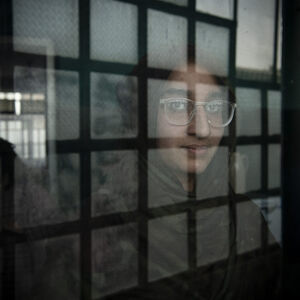
Basira, 22, former College scholar who studied English literature
“I nonetheless attempt to have motivation to proceed my research, however how can I do this if I look into the long run?”
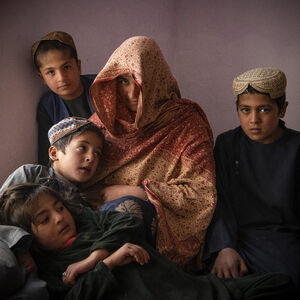
Aziza, 35, misplaced her husband – a Taliban fighter – throughout the warfare
“Now we will exit, however there isn’t any job for us, no college for our youngsters.”
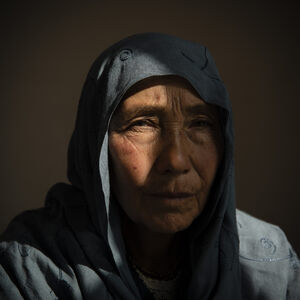
Keshwar, 50s, misplaced her son throughout the Taliban’s first regime
“There will likely be no peace in Afghanistan in my lifetime. Battle will come, warfare will go, it’s going to return once more.”
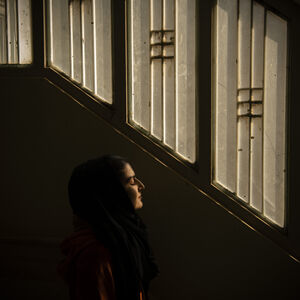
Marjan, 23, labored as a journalist earlier than the Taliban seized energy
“Day after day, I’m getting pushed in a tighter nook. Life has grow to be solitary confinement.”
Some ladies went into hiding, fearing retribution after the Taliban seized energy. Others started protesting on the road. Grandmothers in dusty villages walked out of their mud brick houses with aid, free for the primary time in 40 years of the concern of stray bullets or airstrikes raining down. Some teenage women started attending colleges in secret, echoing the tales from their moms’ childhoods that after felt like grim folklore.
When the Taliban returned to energy in Afghanistan in August 2021, ladies had been among the many most profoundly affected. Whereas the top of combating supplied a welcome respite, notably for ladies in rural areas, others’ lives have been severely constricted. Many watched 20 years of positive factors made beneath Western occupation unravel as the brand new authorities issued edict after edict scrubbing ladies from public life.
At present, Afghanistan is among the many most restrictive nations on the earth for ladies, based on human rights displays. Ladies are barred from secondary colleges. Ladies are prohibited from touring any important distance with out a male family member, and from going to public areas like gyms and parks. In latest months, ladies had been banned from attending universities and from working for support organizations, a few of the final hopes left for skilled or public lives.
These insurance policies have come to outline the Taliban’s authorities within the eyes of the West, and have precipitated rigidity throughout the motion’s management. The adjustments threaten the help supplied by Western donors amid the nation’s dire humanitarian disaster. They usually have been universally condemned, together with by different Islamic governments like Iran’s and Saudi Arabia’s, and set Afghanistan heading in the right direction for near-total isolation on the earth.
The New York Occasions spoke with dozens of girls throughout the nation to know how their lives and Afghan society have modified over the previous yr and a half. That is what they instructed us.
A few of the quotations that seem with photographs have been edited for size and readability.
A Wrenching Change

Afifa, 47, needs extra Afghan males would battle for ladies’s rights
KABUL, Afghanistan — Stroll across the capital, Kabul, and it typically feels as if ladies have been airbrushed out of town.
There are fewer ladies on the streets as of late than even a number of months in the past. An increasing number of, those that nonetheless enterprise out — as soon as in denims and lengthy blouses — are coated head-to-toe in concealing robes, their faces obscured behind masks. Feminine store mannequins have been beheaded or their heads wrapped in tinfoil.

Fatima, 21, says she hates being a lady now

Razia, 20, is anxious and may’t sleep anymore
However probably the most profound change is invisible: It’s the storm of loss, grief and rage that has enveloped town’s ladies, they are saying.

Hawa Gul, 40, together with her daughter Tahera, 17
“The world retains speaking about women’ training, however ladies in Afghanistan have much more issues: poverty, abusive husbands, strict fathers.”
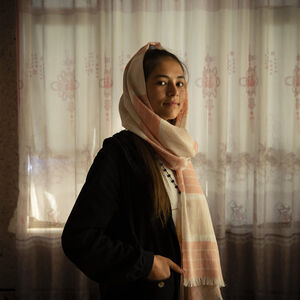
Zohra, 17, was blocked from ending her highschool diploma
“Even inside households, fathers and brothers wish to take management.”
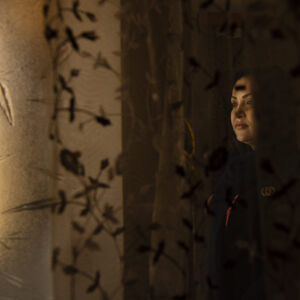
Munisa, 32, a ladies’s rights activist who fled Afghanistan
“These restrictions that Taliban are imposing on ladies are like kidnapping somebody.”
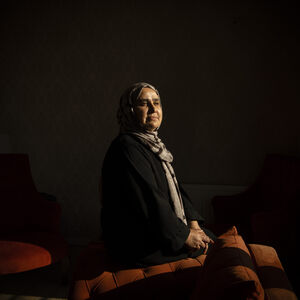
Masooda, 52, a ladies’s therapist
“The younger ladies will not be coping effectively — they misplaced their hopes.”
Masooda, a therapist in Kabul, encounters that tempest every day as she goes home to accommodate visiting her ever-growing record of purchasers. With every new dictate proscribing ladies’s rights, she will get extra telephone calls from ladies determined for any emotional outlet, any avenue for aid. Gone are the times when ladies may discover expression, objective or camaraderie at work or college, and even picnic within the park with associates or wander the zoo’s stone paths.
The return of the Taliban is most tough for the youthful ladies, she says, whose goals of changing into politicians, athletes, surgeons or C.E.O.s as soon as appeared achievable. They grew up in a world of chance — and watched it shatter when the Western-backed authorities collapsed.

Roya, 21, a former athlete on the nationwide Judo staff

Nassima, 57, labored with women’ public colleges throughout the nation
“The younger ladies will not be coping effectively — they misplaced their hopes. They can’t take care of the scenario,” mentioned Masooda, 52, who prefers to go by her first title for concern of retribution.
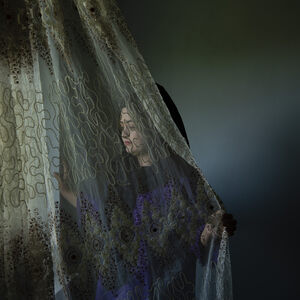
Najia, 28, a former radio journalist
“Talibs don’t really feel comfy speaking with ladies reporters, they suppose their leaders may insult them for it.”
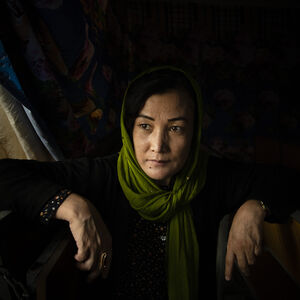
Raihana, 32, labored on the Ministry of Inside
“A month after the Taliban took management of Kabul, my husband went lacking and hasn’t returned dwelling to at the present time.”
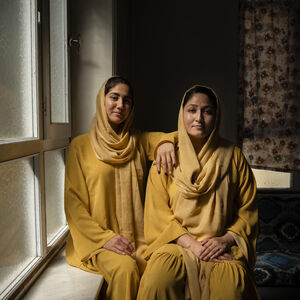
Sumaya, 22, with Bahara, 25, former college students on the Nationwide Army Academy of Afghanistan
“I had a transparent path forward of me, however I really feel misplaced now.”
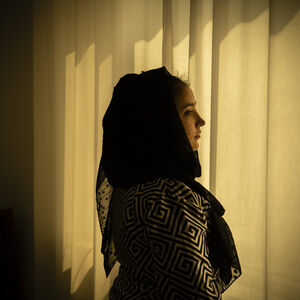
Maryam, 17, turned 16 the day the Taliban entered Kabul
“The long run is darkish. I really feel like a hen that has wings however can’t fly.”
The older ladies, who survived the Taliban’s first administration, are hardened from expertise, she says. The distinction now could be the financial collapse threatening households’ potential even to feed themselves. Ladies’s incapability to work in most jobs has made that disaster much more devastating.
“Even ladies who’re leaving the nation, they aren’t leaving simply because they need freedom,” she mentioned. “In addition they need one thing to eat.”
Peace at Final

Maimoona, 50, misplaced eight kin in a U.S. drone strike
TANGI VALLEY, Afghanistan — For many of the previous 40 years, Habiba may really feel loss of life knocking at her door.
When she was a baby rising up in central Afghanistan, she endured the bloody days of the Soviet invasion after which the years of combating and civil warfare that adopted. After the People invaded in 2001, a few of the fiercest combating performed out in her village alongside the Tangi Valley, a lush patchwork of fields flanked by hills in Wardak Province.

Zuhal, 9, grew to become an orphan throughout the U.S.-led warfare

Rakima, 85, says she spent her complete life in wars – till now
Habiba typically awoke to search out new houses destroyed in in a single day bombings. Each day that she went to gather water or purchase meals, she knew she may not make it again dwelling, and no household appeared unscathed. However Habiba endured.
Then one morning 4 years in the past, her 36-year-old son, Mohammad Sami, was shot within the chest whereas he tended to their wheat fields. Villagers believed he had been killed by a authorities policeman in retaliation for a Taliban assault days earlier.
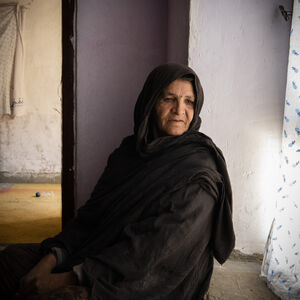
Habiba, round 50, misplaced her son throughout the warfare
“It was raining bullets, rockets and mortars. My youngsters now can go to the sphere and I do know they may come dwelling at night time.”
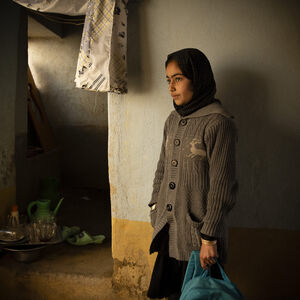
Shakila, 12, a sixth grade scholar
“I wish to go to highschool, even at the price of warfare.”
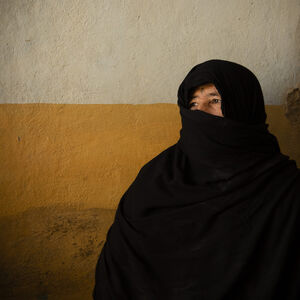
Bibi Alai, 55, grew to become a widow throughout the warfare
“For the reason that invaders have left our nation, we will sleep peacefully at night time.”
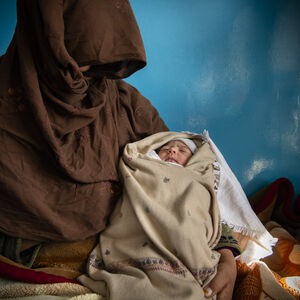
Maryam, 28, got here to a clinic for the primary time
“With my first childbirth, the ache kicked in at night time. I couldn’t come to the clinic: There was heavy combating happening. This time, peace has returned.”
After that, Habiba misplaced herself in rage, she mentioned. She hated the Western-backed authorities. When she noticed their troopers driving via the village, she prayed they’d die. She vowed to assist the Taliban in any means she may — providing them meals, water, a spot to sleep.
Her vengeance got here in August 2021, when the federal government collapsed. Because the village erupted in celebratory gunfire, Habiba beamed with pleasure, she mentioned, and within the yr and a half since she has felt comfy for the primary time in her grownup life.
She visits kin she didn’t see for many years due to the combating. She doesn’t fear about bombs falling from the sky. When her slain son’s 4 younger youngsters go away the home to play, she is aware of they may return dwelling, unhurt.
“All my life was spent in warfare,” mentioned Habiba, who like many individuals in rural Afghanistan makes use of just one title and is round 50 years outdated. “Now we will dwell freely — with out concern or hazard.”
Slowly Constricted Hope

Sohaila Sabri, 30, tried to remain and negotiate with the Taliban administration
HERAT, Afghanistan — Sohaila Sabri was decided to remain.
An worker of the Western-backed authorities’s Listing of Ladies’s Affairs in Herat, a cultural and financial hub in northwestern Afghanistan, she watched after the Taliban seized energy, as ladies activists, politicians and artists drained out of town, and evacuations to Western nations proliferated.
“I used to be pondering if all of us go away Afghanistan, who will construct this nation?” Ms. Sabri, 30, mentioned.
So when she was supplied a possibility to hunt asylum in Germany, she turned it down. Then she started working.

Simin, 42, lives in hiding as a result of her husband fought for the Western-backed authorities

Mursal, 21, Simin’s daughter, says there are not any public areas left for ladies
First, she and the few different remaining activists organized protests within the metropolis. When these protests had been met with bullets and arrests, the ladies switched gears. They met with native officers to barter with them, conferences that reversed insurance policies stopping taxis from transporting ladies touring alone and carved out exemptions so ladies may maintain celebrations for Worldwide Human Rights Day.
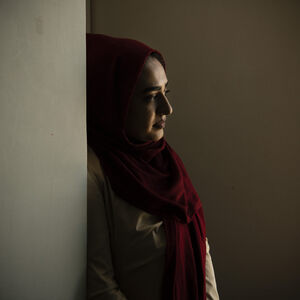
Fatima, 23, widowed days earlier than the warfare ended
“Everybody has gone a distinct means, dwelling a life in a distinct nation.”
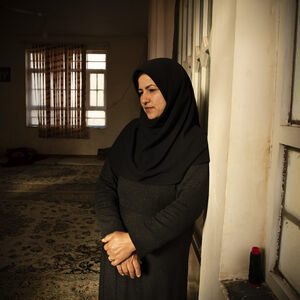
Parigul, 44, mom to 5 youngsters
“With the Taliban coming into energy, my household fell aside. My daughter is in Pakistan. My husband is in Kabul.”
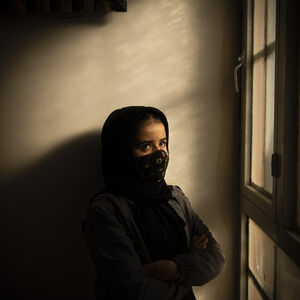
Parissa, 19, former college scholar
“These of us in grade 12 are standing above a ditch. You don’t know in case you ought to soar over or throw your self into the ditch.”
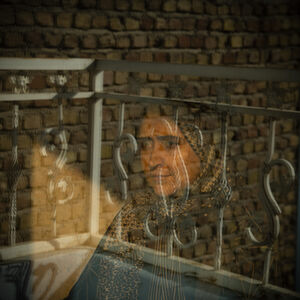
Zarmina, 28, former worker of Herat’s Workplace of Refugees and Repatriation
“I really feel estranged from my very own metropolis and have given up on my goals. I’m full of concern, at each nook.”
She believed that their work may assist protect some area for ladies in Herat, and hoped that native authorities officers would preserve partaking.
However that might quickly change. It occurred slowly at first — then like an avalanche. Cops appeared on the road to implement hijab mandates. Ladies had been turned away from Herat College, then barred from working at nongovernmental organizations.
The identical officers she had negotiated with within the months after the takeover now instructed her their palms had been tied: The flood of latest edicts rolling again ladies’s rights had been coming from Kandahar, the middle of energy of the brand new authorities and residential to its extra conservative management. There was nothing they might do.
As soon as decided, Ms. Sabri felt defeated. Lately, she hardly ever leaves her home. Her brothers now anticipate her to make them breakfast every morning and clear their dwelling.
If she may go away the nation now, she mentioned, she would.
“Some individuals on the earth are fearful of the issues they should lose,” she mentioned, “However Afghan ladies have misplaced the whole lot, they don’t have anything left to lose.”
Finding out in Secret

Mozhda, 23, thinks ladies have been stripped of each proper they’d
KANDAHAR, Afghanistan — The ladies sidle down the cobblestone path to the constructing with the worn wood door. Getting into, they cross a courtyard shaded by a cover of vines, descend down a flight of stairs, and stroll via a slender underground passageway to their classroom.
There are not any home windows, no chairs, no desks. The one decorations on the concrete partitions are a dry-erase board, a fluorescent gentle and a poster depicting correct hand washing approach.

Zarmina, 28, can now not feed her household

Badam Gul, 14, says her life has not modified for the reason that warfare ended
However to the handfuls of high-school women who come right here every morning, the classroom is an oasis — and their presence an act of defiance.
When the Taliban seized energy, women’ colleges remained open in a sort of limbo — neither formally sanctioned nor forbidden — for months. Then hours earlier than lessons had been set to renew for the spring semester in March final yr, the federal government introduced that women had been banned from attending excessive colleges indefinitely.
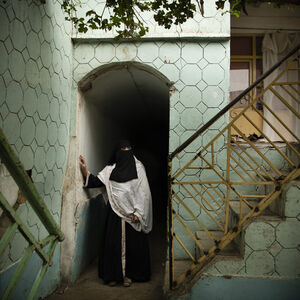
Zubaida, 20, teaches highschool women in secret
“Regimes come and go on a regular basis in Afghanistan. We should always research and be prepared for the subsequent one.”

Abeda, 46, trainer in an underground women highschool
“There’s a Taliban checkpoint on my solution to college. I look them within the eyes to verify they see me.”
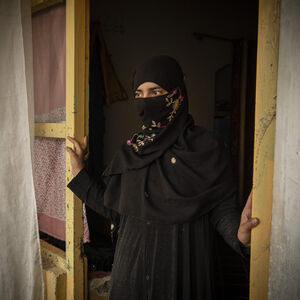
Sayina, 18, couldn’t full her closing yr of highschool
“I wish to research. I simply can’t keep in my home all day, bored and lonely.”
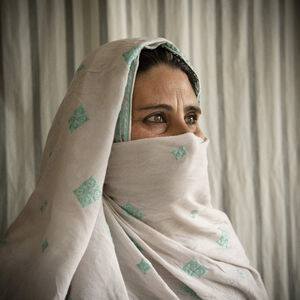
Raghjia, 38, runs an underground women college in her dwelling
“Each mom needs her little one to check since we couldn’t go to highschool once we had been younger.”
It was a darkish day for teenage women throughout the nation. They describe passing the months that adopted in a fog of deep despair. However because the anger and grief subsided, many had been decided to discover a means again to the classroom.
In a single neighborhood in Kandahar, a southern metropolis within the Taliban heartland, former high-school college students and academics banded collectively to create an underground classroom for ladies to proceed their research. The academics publish a lookout on the entrance gate every morning and name the scholars’ mother and father to make sure they arrive dwelling safely every afternoon. If they’re ever questioned about what occurs within the constructing, the schoolgirls have been coached to reply that they’re attending Quranic lessons, that are nonetheless permitted for ladies.
It’s typically a terrifying endeavor. However the college students and academics alike are clinging to it as one of many few remaining sources of hope.
“Regimes come and go on a regular basis in Afghanistan,” mentioned Zubaida Azizi, 20, a trainer. “We should always research and be prepared for the subsequent one.”
An Unyielding Concern

Khadija, 19, says ladies in Afghanistan can not hand over hope
BAMIYAN, Afghanistan — The concern lives inside her, Keshwar Nabizada says.
It was born when the Taliban first seized energy a era in the past and wreaked havoc on her village in Bamiyan Province, a middle of Afghanistan’s Hazara ethnic minority. The fighters burned her home to the bottom, and killed her 17-year-old son, she mentioned. Her brother was arrested and disappeared for months. When he was lastly discovered, useless, she may solely acknowledge him by the wool jacket she had stitched collectively for him by hand.

Roqia, 60, misplaced her son throughout the first Taliban regime

Gulbakht, 49, was displaced throughout the Taliban’s first stretch in energy
After that regime was toppled, she went again to planting potatoes on her small farm and loved the calm the American invasion introduced. “It was like we weren’t in jail anymore,” Ms. Nabizada, 60, mentioned. Nonetheless, the fear by no means actually went away. She recounted tales of these bloody days to her surviving youngsters, telling them the Taliban had been by no means to trusted, all the time to be feared.
When the Taliban returned to energy in 2021, the panic roared again. Ms. Nabizada and her household fled the realm for months, frightened of one other bloodbath. A yr and a half later, she says she now believes the Taliban’s new rule just isn’t as brutal as its first.
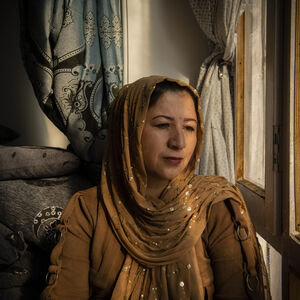
Najiba, 30, former director of Bamiyan’s Division of Returnees and Repatriation
“Everytime I shut my eyes, I think about a world the place I don’t have to cover myself anymore. A world the place I really feel secure.”
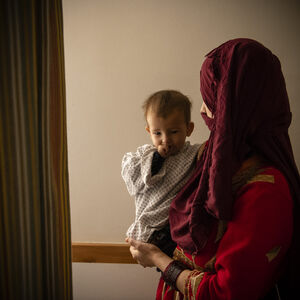
Arezoo, 21, mom to a toddler hospitalized with extreme malnutrition
“In my tribe, women by no means go to highschool.”
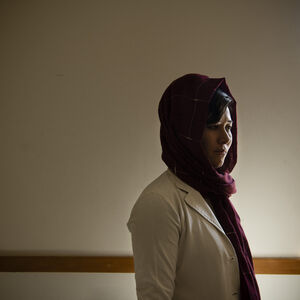
Kobra, 24, nurse in a malnutrition ward of a public hospital
“Poverty has taken over our lives and is sweeping our livelihood away.”
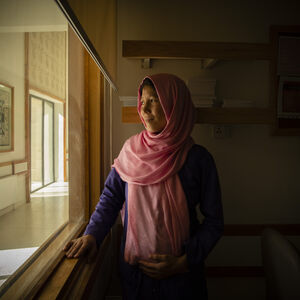
Fatima, 25, is coaching to be a midwife
“I fear about the way forward for my youngsters, particularly the daughter that I’m carrying.”
“To be sincere, this regime in energy now could be higher — they aren’t going round and killing individuals like earlier than,” she mentioned.
Nonetheless, she says, she can not shake the dread.
“I’ve the concern 24 hours a day, the concern is not going to go away me alone even at night time. Once I get up, I simply pray to God, ‘Please, assist Afghan individuals to no less than dwell in peace,’” she mentioned.
Supply: NY Times



